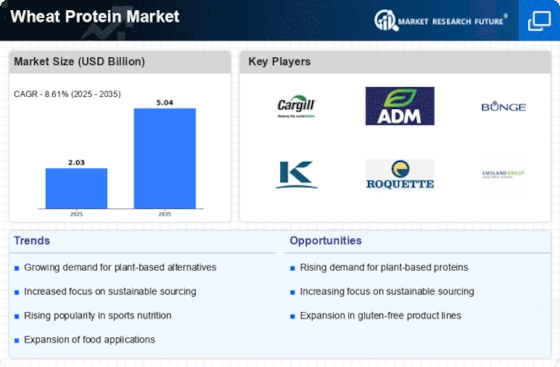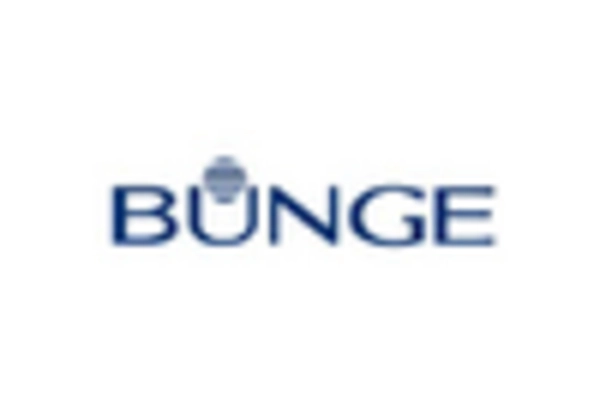Market Trends
Key Emerging Trends in the Wheat Protein Market
The wheat protein market is undergoing notable trends that reflect the growing demand for plant-based proteins and the diverse applications of wheat-derived ingredients. Wheat protein, extracted from wheat gluten or directly from wheat, has gained prominence as a functional and nutritious alternative to traditional animal-based proteins. One prevailing trend in the wheat protein market is the increasing adoption of plant-based diets and the surge in demand for meat alternatives. With consumers seeking sustainable and ethical protein sources, wheat protein has found its place in plant-based burgers, sausages, and other meat substitutes. This trend aligns with the broader movement towards reducing meat consumption for health and environmental reasons, positioning wheat protein as a key player in the plant-based protein market.
Moreover, the sports and nutrition industry is contributing to the growth of the wheat protein market, with a focus on clean-label and allergen-free protein options. Wheat protein, being naturally free from common allergens like soy and dairy, appeals to individuals with dietary restrictions or sensitivities. The protein's complete amino acid profile makes it suitable for various sports nutrition products, including protein bars, shakes, and supplements. This trend reflects the increasing demand for clean and transparent ingredient lists in the sports and nutrition sector.
Additionally, the market is witnessing innovation in wheat protein product development, with a focus on enhancing functionality and expanding applications. Wheat protein's versatile characteristics, including its ability to improve texture, increase water retention, and enhance shelf stability, make it a valuable ingredient in bakery, snacks, and other processed foods. As consumers seek plant-based alternatives without compromising on taste and texture, the market is responding with novel formulations that showcase the adaptability of wheat protein in various food and beverage applications. This innovation trend is driving the market's appeal across a wide range of industries.
Sustainability is emerging as a key driver in the wheat protein market, with consumers and manufacturers prioritizing eco-friendly practices. Wheat protein is derived from wheat, a widely cultivated and renewable crop, contributing to the overall sustainability of the ingredient. Brands are increasingly focusing on sustainable sourcing, efficient production processes, and eco-friendly packaging to align with consumer values. This sustainability trend not only addresses environmental concerns but also positions wheat protein as a responsible choice within the plant-based protein market.
Furthermore, the market is experiencing a regional diversification, with different regions showcasing varying levels of adoption and demand for wheat protein. Europe stands out as a significant market, driven by the region's strong focus on sustainable and plant-based diets. North America is also witnessing substantial growth, influenced by the increasing popularity of vegetarian and flexitarian lifestyles. This regional variation in demand is shaping market dynamics, with manufacturers tailoring their strategies to cater to the specific preferences and trends in different parts of the world.


















Leave a Comment